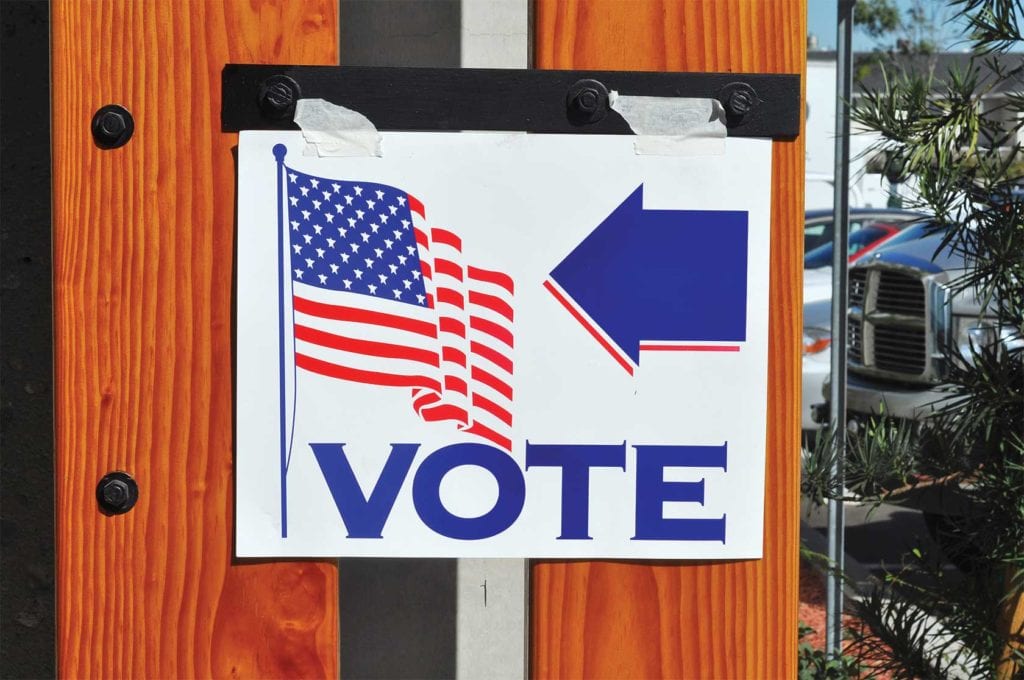
Law and governance experts gathered on Dec. 7 during a Center for American Progress online forum to advocate for election improvements as President Donald Trump’s lawsuits continue to be dismissed in court.
“To witness the alarmingly desperate attempts to cast doubt on this election and to elevate the non-issue of voter fraud is creating such dangerous conditions in our democracy,” said Janai Nelson, associate director-counsel of the NAACP Legal Defense and Education Fund.
Americans should not base election laws on false theories of voter fraud, which ultimately make it more difficult for people to vote, Nelson said. Instead, voting should become easier and more accessible.
“We want to, of course, make sure that it’s safe and secure. And we can do all things without responding and caving to a false narrative of voter fraud,” she said.
Nelson added that the country needs “unity and cooperation and solidarity” in order for people to get through the pandemic and deal with the country’s changing demographics.
“I can’t think of anything more unpatriotic than sowing the seeds of doubt that the president is doing right now,” she said.
The Dec. 8 “safe harbor” deadline was a key checkpoint for ensuring Joe Biden’s position as president of the United States. That was the deadline for resolving any election disputes, said Nelson.
Electors cast their ballots on Dec. 14 and the Senate president will receive them on Dec. 23. They meet for a final time on Jan. 6 to count the ballots and prepare for a peaceful transition of power on Inauguration Day.
Benjamin Ginsberg has been counsel to multiple presidential campaigns and formerly served as the co-chair of the bipartisan Presidential Commission on Election Administration. He urged people to acknowledge the country’s deep polarization.
“To me, it was very alarming that the Trumpian rhetoric actually took root in such a large degree of the electorate,” he said. “I don’t believe there’s any evidence of systemic fraud, but there [is] clearly a large percentage of the population that does.”
A close call
Ginsberg’s Dec. 4 op-ed for the Washington Post, titled “America may not be so lucky next time,” notes that although Trump was unable to find evidence of widespread fraud and his challenges were dismissed, the election was also dependent on the fact he lost by a wide margin.
Biden ultimately had 306 electoral votes; Trump had only 232. If not for this wide margin, Ginsberg noted, the country may have fared differently post-election.
Norman Ornstein, board chair of the Campaign Legal Center, agreed. He noted that Biden could have ended up with 270 votes, right at the margin.
“We dodged a bullet here,” he said. “If it had been much closer, the pressure on state legislators to intervene and maybe even on judges to look at this in a different way would have been greater and different,” he said.
Ginsberg said that he is in favor of setting up some process for voters to go out and try to prove a fraud case.
“I think that there are … a number of things that can be done to sort of get us back to a more even, less polarized view of the whole voting process and fraud and suppression dichotomy,” he said. He advocated against “scolding one party at the expense of the other.”
Voter suppression
Nelson pushed back against claims that the election ran smoothly, despite a high and unprecedented voter turnout. She said that there was widespread voter suppression throughout the country.
“The truth is that there was a torrent of obstacles to impede Black voters from exercising the right to vote,” she said. She added that the pandemic created deeper stresses on communities that are “already marginalized and excluded from the electorate.”
Nelson cited various incidents nationwide where Black voters were threatened or turned away from polling stations. She said there were documented reports of armed people showing up at the polls, and various voters wearing Black Lives Matter shirts were turned away in Tennessee and Georgia.
She advocated for the For the People Act, a new bill in Congress to end voter suppression and expand accessibility.
Mail-in ballots will be an option even after the pandemic is over. In the forum, each panelist advocated for ways to ensure lawful and unchallenged voting.
“Consolidation of who’s got responsibility for elections within states is one of those reforms that I think would be really helpful,” said Ginsberg. He referred to Georgia’s system, where all counties in the state essentially use the same voting machines.
Ornstein suggested more drop boxes for ballots, rather than going through the U.S. Postal Service, which suffered from Trump’s budget cuts prior to the election.
Nelson said that now is a time to put country over party.
“This is a moment for true patriotism,” she said, “which requires us to be as loyal as possible to the Constitution, loyal to the rule of law, to not allow this divisiveness to degrade what is such a promising, multiracial, multicultural democracy.”






